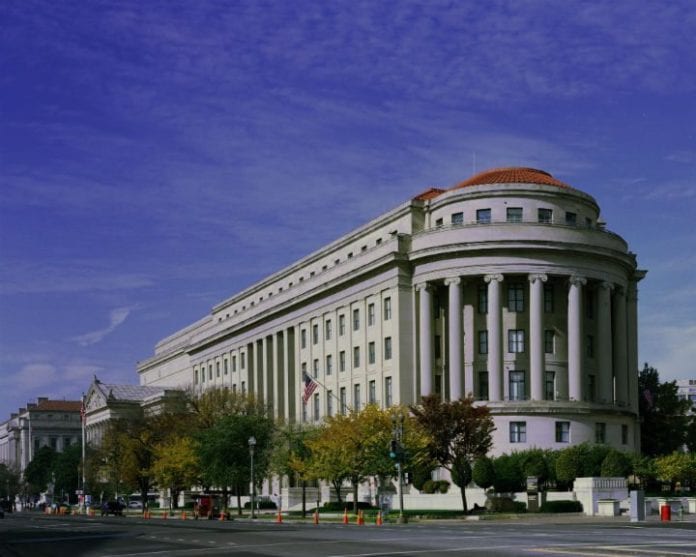FTC Chairwoman Edith Ramirez told the Senate Commerce Committee the court decision in AT&T throttling case removes authority in enforcing Sec. 5 of FTC Act
Following a stinging rebuke of its authority to regulate common carriers, the Federal Trade Commission is looking to challenge a circuit court’s decision to allow AT&T to have a case dismissed related to its data throttling policy.
Speaking in front of the Senate Commerce Committee this week, FTC Chairwoman Edith Ramirez noted an August decision by the U.S. Court of Appeals for the Ninth Circuit could remove the FTC’s authority in enforcing Section 5 of the FTC Act against common carrier activities as well as noncommon carrier activities “engaged in by an entity with merely the ‘status’ of a common carrier, even if that is not its principal line of business.”
“As the telecommunications and internet industries continue to converge, the common carrier exception is increasingly likely to frustrate the FTC’s ability to stop deceptive and unfair acts and practices and unfair methods of competition with respect to a wide array of activities,” Ramirez testified. “For example, the AT&T decision could prevent the FTC from bringing ‘cramming’ cases against telephone companies and could have other further reaching effects as well on FTC programs ranging from Do Not Call to [Children’s Online Privacy Protection Act]. The [Federal Communications Commission] authority over common carriers is limited to the provision of services for or in connection with common carriage. If common carriers are providing noncommon carrier products or services, one outcome might be that neither the FCC nor the FTC would have jurisdiction to respond to practices that harm consumers. And even in cases where the FCC can respond, it lacks authority to seek consumer redress.”
The U.S. Court of Appeals for the Ninth Circuit in August overturned a district court’s decision preventing AT&T from having the case thrown out due to a lack of authority by the FTC in the matter. The appeals court sided with AT&T’s claims that it operates as a common carrier and thus is not subject to “the acts to regulate commerce,” which is the realm of the FTC.
In making its claim, AT&T cited follow-up action by the FCC to reclassify mobile data services as a common carrier service, thus moving jurisdiction to regulate the practice from the FTC to the FCC. An FTC spokesman at the time told Reuters the agency is deliberating an appeal of the latest decision, though AT&T is still open to a fine from the FCC on the matter.
Ramirez cited the FCC reclassification as intensifying the “problem,” as “broadband providers are now deemed common carriers, not only is their broadband service beyond the reach of FTC enforcement, but other, nonbroadband activities may be as well. Any company that has or acquires the status of a common carrier will be able to argue that it is immune from FTC enforcement against any of its lines of business by virtue of its common carrier status.”
“Even apart from the effect of the AT&T decision, unless the common carrier exception is repealed, the commission will no longer be able to bring cases like the ‘throttling’ actions against AT&T and TracFone,” Ramirez stated. “In both cases, we alleged that the companies promised their customers unlimited data but in reality severely limited data usage by reducing – or throttling – the data speeds of high-usage customers to the point that many common mobile phone applications, like web browsing, GPS navigation and streaming video, became difficult or nearly impossible to use. This type of basic consumer protection issue falls squarely within the core mission of the FTC.”
The AT&T case was initiated in late 2014, when the FTC filed a court complaint alleging AT&T Mobility did not adequately inform customers on unlimited data plans that they would have their data speeds reduced once they reached a certain amount of data used. The FTC noted AT&T Mobility’s move in 2011 to begin throttling data speeds for unlimited data customers once they hit 2 gigabytes of usage per month, “often resulting in speed reductions of 80% to 90% for affected users.”
The FTC argued AT&T Mobility violated FTC regulations “by changing the terms of customers’ unlimited data plans while those customers were still under contract, and by failing to adequately disclose the nature of the throttling program to consumers who renewed their unlimited data plans.” The FTC claimed some consumers only received a single notice in their billing statement on the change in practice, with that notice not explaining the extent of the measures.
AT&T countered the claim, stating the allegations were “baseless and have nothing to do with the substance of our network management program.”
Bored? Why not follow me on Twitter

